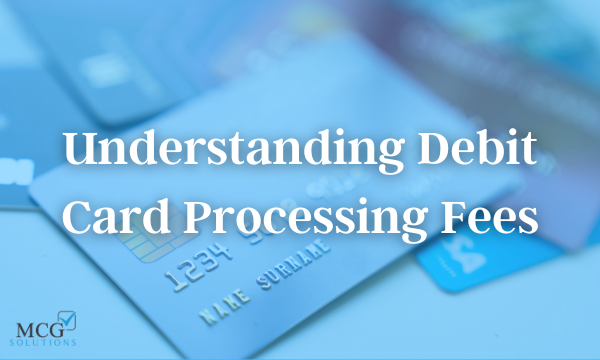Understanding the ins and outs of debit card processing fees is crucial for maintaining a healthy bottom line. As cash transactions become less common, it’s important to get familiar with the various fees associated with accepting debit cards.
Interchange fees
Interchange fees are charges paid by the merchant’s bank to the cardholder’s bank for processing the transaction. These fees are set by major card networks like Visa and Mastercard and are influenced by factors such as transaction type, business type, and risk. While interchange fees are non-negotiable, understanding how they work can help businesses optimize their operations and mitigate costs.
Assessment fees
Card networks also impose assessment fees, which are separate charges for the privilege of using their payment infrastructure. These fees are typically a percentage of the transaction value and contribute to the overall cost of processing debit card payments. Small business owners should be aware of assessment fees and factor them into their pricing strategies to ensure profitability.
Processor markup
Payment processors, the intermediaries between merchants and banks, charge a markup on top of interchange and assessment fees for their services. This processor markup varies among service providers.
Businesses should carefully compare rates and negotiate favorable terms. Transparent communication with payment processors is key to understanding the full cost structure and avoiding hidden fees that may impact your profits.
Flat fees and incidental charges
In addition to percentage-based fees, businesses may encounter flat fees and incidental charges associated with debit card processing. These could include monthly service fees, statement fees, chargeback fees, and other miscellaneous charges. It’s important to thoroughly review the terms of service with your payment processor to identify and understand these additional costs.
PIN debit vs. signature debit
Debit card transactions can be processed as either PIN (Personal Identification Number) debit or signature debit. The processing method chosen can affect interchange fees. PIN transactions often involve lower costs. Small business owners should evaluate their customer preferences and transaction volumes to determine the most cost-effective processing method for their specific circumstances.
Negotiating and adapting
Small business owners can and should approach debit card processing fees as negotiable parts of their financial arrangement with payment processors. Negotiation strategies may involve leveraging your transaction volume, exploring different pricing models, or seeking competitive quotes from multiple providers. A proactive approach to negotiations can result in more favorable fee structures and cost savings for your business. Remember—it never hurts to ask for a better deal.
Similarly, it’s important to stay up to date on financial trends and technology. Debit card processing fees tend to be dynamic, with industry changes and technological advancements influencing the cost structure. Staying informed about card networks, regulatory changes, and payment processing technology ensures that your business remains financially efficient and competitive.
Keeping detailed records of all your debit card transactions can help you identify which pricing structures and payment processors are best for your small business—and when it’s time to look for a new processor.
For help with your bookkeeping and tax preparation needs, reach out to MCG Solutions today.

